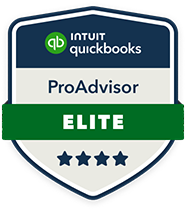KEY TAKEAWAYS
- There are far more tax incentives than the handful of federal programs that developers typically know about, including local utility incentives and job creation incentives.
- Tax increment financing can be an extremely useful addition to a developer’s capital stack, but it takes an intimate knowledge of a jurisdiction’s regulations.
- Especially for larger value-add acquisitions, tax incentives can make projects more feasible by lowering the long-term operational costs of development.
While sponsors may rightfully be focused on sourcing deals and raising capital, they should not overlook the impact of tax incentives on the deals they choose. While tax programs may not turn a bad deal into a good one, they can significantly lower long-term development costs and drive higher yields on projects with slim margins.
New Markets Tax Credits, which incentivize development in underserved areas, function similarly to very cheap senior debt in a capital stack. Because the loans do not require principal to be paid for the first seven years, they allow developers to more quickly see higher cash flow on their projects and pay down more expensive pieces of their debt, lowering debt service costs over the lifetime of the project. After seven years, the debt from the third party is forgivable, offering a significant benefit on the back end, said RSM US Senior Manager Debbie Singer.
Tax Increment Financing, or TIF, programs can also make it easier to create new developments by lowering property taxes and other long-term costs for a project. But getting approval for a TIF district requires a strong relationship with the city in question, and every city’s TIF approval process is unique, Singer said.
“A lot of the sponsors of big projects will know about TIF, but knowing about it is entirely different from navigating it,” Singer said. “You need buy-in from local officials and residents.”
Beyond these programs, though, there are often dozens of local programs to incentivize new development, including discounts on utilities and incentives for job creation, some of which can provide cash directly to developers, rather than just lowering their costs. Especially for developers making acquisitions in new markets, working with a professional who lives and breathes incentives can unlock new value in their projects.
Utility benefits vary across the country, however they frequently come in the form of utility tax reductions or rate reductions. For example, projects within the geography served by the Tennessee Valley Authority can access tax credits related to expanded operations. The TVA also offers performance grants for certain new and expanding companies in the region.
Because of their focus on community revitalization and new redevelopment, tax incentives will likely play their most important roles in large-scale projects that rethink the highest and best use of assets. They are less important for recapitalization deals, Singer said, than they are for a deal that brings a new manufacturing facility to a graying industrial area, or brings a grocery store to a food desert.
“These incentives are most crucial for projects that are creating and retaining jobs and providing benefits to a low-income community,” Singer said. “That’s where the world of distressed acquisitions and the world of social impact can be one and the same.”
This article was written by RSM US LLP and originally appeared on 2021-03-07.
2022 RSM US LLP. All rights reserved.
https://rsmus.com/insights/industries/real-estate/tax-incentives-for-distressed-real-estate-investment.html
The information contained herein is general in nature and based on authorities that are subject to change. RSM US LLP guarantees neither the accuracy nor completeness of any information and is not responsible for any errors or omissions, or for results obtained by others as a result of reliance upon such information. RSM US LLP assumes no obligation to inform the reader of any changes in tax laws or other factors that could affect information contained herein. This publication does not, and is not intended to, provide legal, tax or accounting advice, and readers should consult their tax advisors concerning the application of tax laws to their particular situations. This analysis is not tax advice and is not intended or written to be used, and cannot be used, for purposes of avoiding tax penalties that may be imposed on any taxpayer.
RSM US Alliance provides its members with access to resources of RSM US LLP. RSM US Alliance member firms are separate and independent businesses and legal entities that are responsible for their own acts and omissions, and each are separate and independent from RSM US LLP. RSM US LLP is the U.S. member firm of RSM International, a global network of independent audit, tax, and consulting firms. Members of RSM US Alliance have access to RSM International resources through RSM US LLP but are not member firms of RSM International. Visit rsmus.com/aboutus for more information regarding RSM US LLP and RSM International. The RSM(tm) brandmark is used under license by RSM US LLP. RSM US Alliance products and services are proprietary to RSM US LLP.

At Keegan Linscott & Associates, our people are our greatest asset. We embody a commitment to our people in our culture of openness, cooperation, teamwork and community service. Keegan Linscott provides exceptional training, coaching, a positive work/life balance and opportunities for personal and professional development. Keegan Linscott’s dedicated team of multi-faceted professionals stand ready to provide the highest quality of audit, tax and consulting services to our valued clients and community. We are leaders in our practice areas and are uniquely qualified to provide innovative and practical solutions.
As a group of practitioners working together, the professionals at Keegan Linscott are able to specialize in specific areas of accounting, audit, taxation, and consulting – a key advantage which allows us to offer a higher standard of service quality.
For more information on how Keegan Linscott & Associates, PC can assist you, please call (520) 884-0176.




